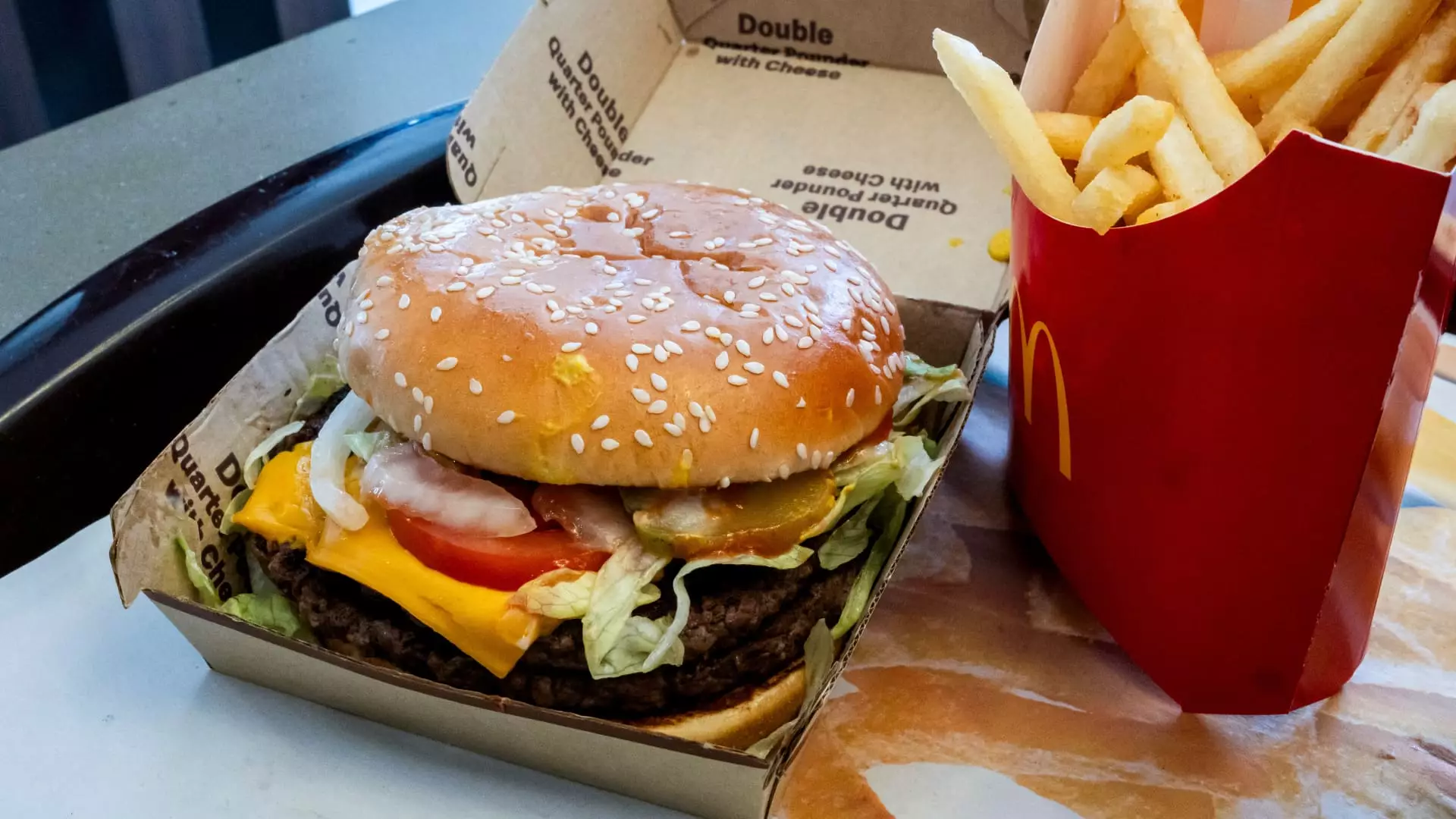In a recent turn of events, McDonald’s, the global fast-food titan, is reintroducing its beloved Quarter Pounder burgers to approximately 900 locations across the United States. This decision comes on the heels of a chilling E. coli outbreak that prompted the temporary removal of this menu item from many outlets. A substantial portion of McDonald’s U.S. operations—accounting for roughly 20%—will witness the gradual reintroduction of Quarter Pounders, albeit without slivered onions. This cautious approach reflects the ongoing investigation into the origins of the outbreak, emphasizing the company’s commitment to customer safety while navigating the complexities of public health concerns.
Targeted Areas and Health Authority Involvement
The geographical areas affected by the E. coli scare primarily include states like Colorado, Kansas, and Wyoming, alongside portions of Idaho, Iowa, Missouri, Montana, Nebraska, Nevada, New Mexico, Oklahoma, and Utah. As health authorities continue to probe the situation, McDonald’s has made the strategic decision to exclude the ingredient believed to be a potential vector for contamination—slivered onions. While the Colorado Department of Agriculture has conducted tests that failed to detect E. coli in beef samples, the scrutiny has shifted to the onions, supplied by Taylor Farms. This focus hints at the pressing need for stringent quality control within the supply chain, a concern that has been amplified by the recent outbreak.
Cesar Pina, McDonald’s Chief Supply Chain Officer for North American operations, reassured the public in a statement, emphasizing that the issue seems confined to a specific ingredient rather than the overall beef supply. His declaration of confidence in the removal of potentially contaminated products from their chain provides a glimpse into the company’s crisis management strategies. By taking prompt action to sever ties with Taylor Farms as a supplier, McDonald’s exhibits an earnest effort to regain customer trust and ensure food safety. Furthermore, the company is actively sourcing a new supply of fresh beef patties, implying a robust commitment to quality and consumer health moving forward.
The Centers for Disease Control and Prevention (CDC) reported alarming statistics regarding the outbreak, confirming that it has led to 75 cases across 13 states. Among those affected, 22 individuals have suffered hospitalization, highlighting the severe implications that foodborne illnesses can have on public health. With one tragic death confirmed, the stakes of this investigation are undeniably high. The CDC indicates that the outbreak’s timeline spanned from September 27 to October 11, a critical window during which McDonald’s typically dispenses an impressive one million Quarter Pounders weekly in the impacted regions. This frequency raises questions about the effectiveness of existing regulatory measures governing food safety.
Communication and Rebuilding Trust
In response to the crisis, McDonald’s USA President Joe Erlinger extended a heartfelt apology to customers feeling ill or unsettled due to the situation. His public acknowledgment is a crucial step in the company’s efforts to rebuild trust with consumers, particularly in an age where transparency and accountability are paramount. With the company set to announce its third-quarter earnings soon, it will be interesting to see how this outbreak affects not only consumer sentiment but also investor confidence. After a reported decrease of 7% in stock value since the CDC’s announcement, the implications of this public health crisis extend far beyond customer health—they challenge the very foundations of corporate reputation.
Moving Forward: A Cautious Optimism
As McDonald’s gradually reintroduces the Quarter Pounder to its menu, there lies an undercurrent of cautious optimism. While the efforts to remove potentially contaminated ingredients and communicate transparently about the outbreak reflect a proactive stance, the company must remain vigilant. Continuous monitoring of food safety practices and ongoing communication with health authorities will be vital in mitigating future risks. How well McDonald’s navigates this crisis could ultimately sculpt its long-term reputation and customer loyalty, highlighting the delicate balance between business interests and public health imperatives. The fast-food chain’s journey ahead could serve as an important case study on crisis management in the fast-paced world of food service.


Leave a Reply